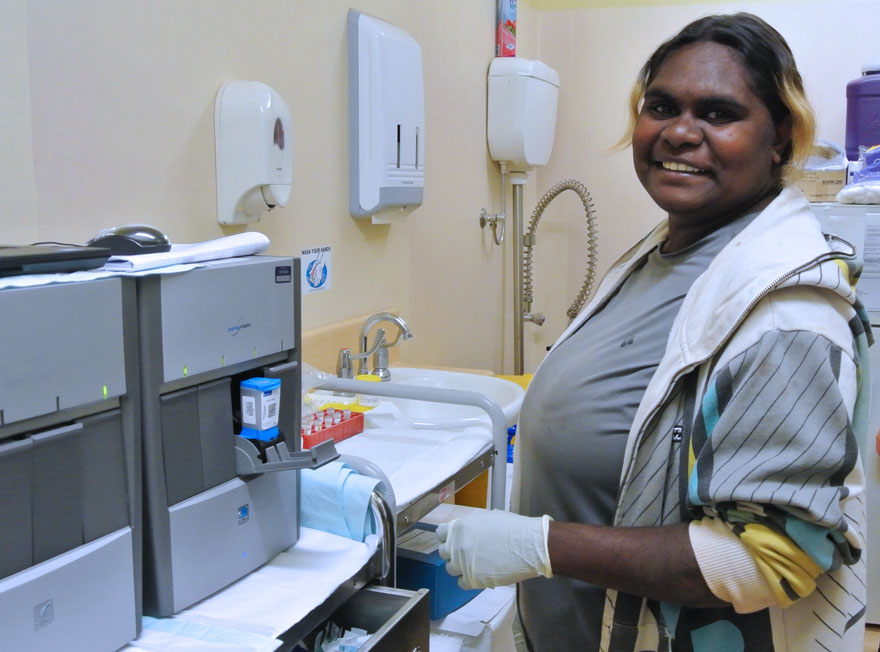The Kirby Institute at UNSW Sydney welcomes the Federal Budget announcement of ongoing funding to support a Medicare rebate for molecular point-of-care testing for sexually transmissible infections (STIs) in remote communities across Australia.
The budget decision was based on a submission by the Kirby Institute, with support from the National Aboriginal Community Controlled Health Organisation (NACCHO), and means that remote health services can continue to offer highly effective and timely tests for STIs.
This rebate is the first Medicare item to provide health services with reimbursement for an infectious disease point-of-care test and will provide a sustainable and enduring funding model for the future.
Dr Louise Causer from the Kirby Institute says that offering a Medicare rebate for this type of testing “reflects the need for point-of-care testing in remote and very remote locations across Australia, where centralised laboratories are often thousands of kilometres away. It also addresses a major inequity in healthcare access, by providing timely diagnostics for infectious diseases in Aboriginal communities.”
Dr Dawn Casey, Deputy CEO of NACCHO, says that the item also recognises the need to support Aboriginal Community Controlled Health Organisations (ACCHOs). “The item listing is a formal recognition of the staff time and costs associated with offering these tests. It means that there is now no cost disincentive to providing STI tests. This allows health services to be self-sufficient and have greater ownership and control over the way pathology services are provided to their community.”
The Kirby Institute has worked collaboratively with Flinders University International Centre for Point-of-Care Testing and other key stakeholders for more than a decade to deliver molecular point-of-care testing programs to Aboriginal and Torres Strait Islander communities across Australia.
Point-of-care testing is a technology that allows a health worker, nurse or doctor to perform a molecular test on a patient sample on-site using a compact testing device, with results available in a few hours.
An Aboriginal Health Worker using the GeneXpert testing platform to conduct an STI test as part of the TTANGO trial.
“This technology is revolutionising the way health services can test and treat for STIs in remote communities,” says Professor Rebecca Guy, head of the Surveillance and Evaluation Research Program at the Kirby Institute. “The Kirby Institute and NACCHO have been advocating for this Medicare rebate for more than five years, and our research underpinned the submission to the Medicare Services Advisory Committee (MSAC).
“Our application requested a rebate for health services in both regional and remote locations, but the rebate was only approved for services in remote locations.
“However, we commend the Australian Government on this important decision and recognise it as a critical step towards addressing health inequities.
“We will continue to advocate for the geographical scope to be expanded, allowing all Aboriginal Controlled Community Health Organisations in regional, rural and remote locations to have access to this important rebate and ultimately contribute to driving down STIs and reproductive morbidities in regional and remote communities in Australia.”

